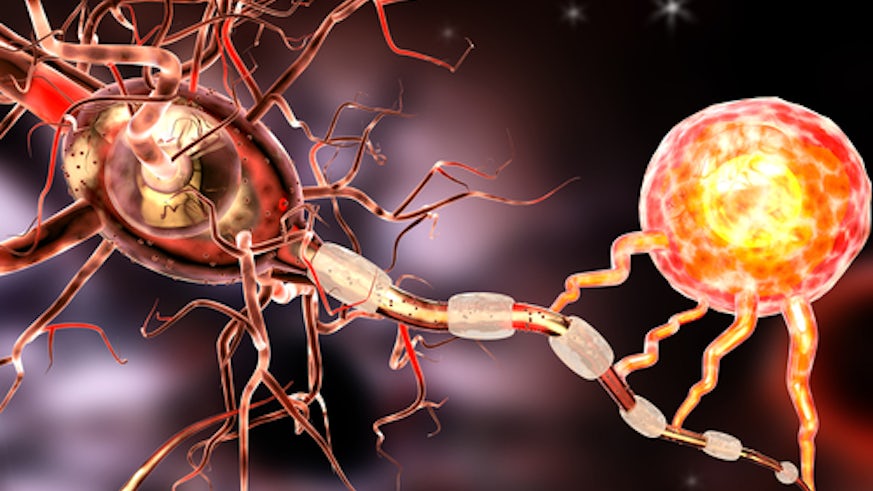Ben Newland highly commended at 3Rs awards
15 July 2022

Dr Ben Newland of the School of Pharmacy and Pharmaceutical Sciences has been awarded the highly commended 3Rs prize for his work on creating a new way to study Multiple Sclerosis (MS).
The National Centre for the Replacement, Refinement & Reductions of Animals in Research (NC3Rs) is a UK based organization established to curb the number of animals that need to be used in medical research. They run the 3Rs awards that celebrate the most exciting advances of the year.
Dr Newland’s commendation resulted from the publication of a paper that could help reduce the number of animals used in the study of MS. The main pathology of MS is typified by the degradation of the myelin sheath, a substance that encases many nerve fibres. New medicines seek to promote the regrowth of myelin, which could have huge benefits for patients.
Traditionally, animals are used to test new MS compounds that could help with myelin regrowth (or remyelination). The problem has always been that many animals are needed to understand if there is a true effect of the treatment, even for a relatively simple study. However, Dr Newland teamed up with Professor Anna Williams at the University of Edinburgh to recreate the patchy and complex pathology of MS in a petri dish. This new “model” of the MS condition uses slices of brain and spinal cord tissue, rather than live animals. This therefore replaces live animal experimentation and drastically reduces the number of mice required, because several brain and spinal cord slices can be obtained from a single animal. Furthermore, Dr Newland’s new technology, which uses cryogel scaffolds, mimics the condition of MS in patients more closely than that of the previous techniques. This is because in MS patients lesions (myelin loss) form in certain areas of the brain, but which are also surrounded by healthy tissue – a characteristic that has not been achieved in tissue culture before. Dr Newland and Prof. William’s new research has shown that the addition of the cryogel scaffolds allows them to deliver a reagent focally to create a small lesion surrounded by healthy tissue – a first of its kind discovery, making this a landmark study.
Dr Newland said of his commendation, “I’m really pleased to be awarded this prize. There has been much interest from other laboratories as the new technique allows new important scientific questions to be answered with less animal use. Now the goal is to help other groups copy this and set this up for themselves.”